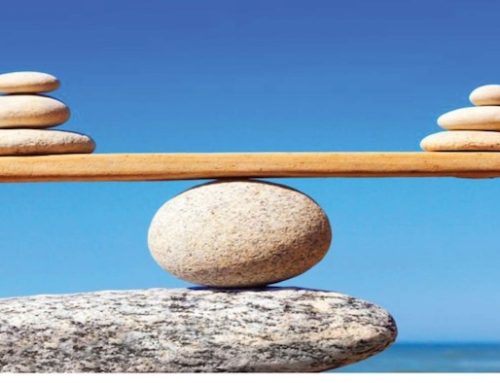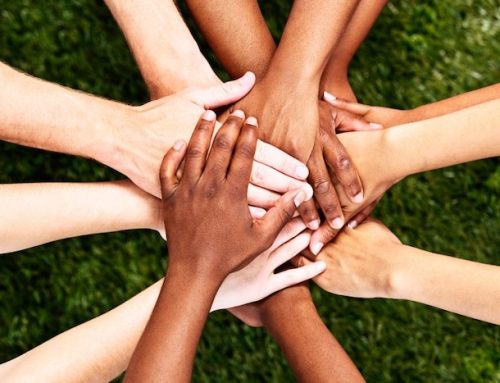Neither you, nor I, nor anybody knows what the future holds. In the last two years we have all learned this lesson. It seems like the uncertainty of the future, which heretofore lay comfortably beyond the next month or year, came crashing back to the present. Today, let alone tomorrow, has become very difficult to predict. At times, it feels like the flames are lapping at our feet. This immediacy of uncertainty has caused tremendous anxiety that has manifested as depression and pain compromising both our mental and physical health. When we add isolation to the mix, necessary to protect ourselves from Covid-19, we have, in effect, created a pressure cooker with no apparent relief valve.
Yet, by most headline measures Americans are doing well today. The stock market is up, jobs are plentiful, wages are increasing, vaccines are working (if only everyone participated), American’s savings accounts are at historical highs, our military is not involved in any hot wars, and billions of dollars in infrastructure development are being deployed to improve our communities and lives. But, anger, violence, and suicide are at epidemic levels. Despair is at an all-time high. The surgeon general is sounding the alarm about anxiety, depression, and suicide among our children and adolescents. The truth is adults are faring no better. Forget the American Dream, the American experience—our daily interactions that comprise all of those things we do to make our lives work—are, at best, strained and unreliable.
In my now six decades of being an American, I have never seen so many things that just don’t work. The simple things in life can no longer be taken for granted. It is both frustrating and exhausting. Pre-pandemic, if a water main broke there were both the workers and the pipe available to fix it. Christmas shopping did not require an advanced degree in supply chain logistics, not to mention less gift for more money. When a flight attendant accidentally bumped a passenger’s arm while performing their duties they didn’t get punched in the face. People didn’t scream at you at the Post Office for wearing a mask. And, the mail you went to pick up showed up when it was supposed to—undamaged!
The painful paradox of the American experience today is that it is counter to a culture based on striving. As Americans, we believe we cannot only perform the simple things; we can accomplish the unimaginable. We strive to pursue success and happiness on whatever terms we choose. In the midst of all the striving we eventually realize—after both victories and tribulations—that life is more about thriving than striving. At the core of thriving lies sweet peace, which is that strength of equanimity that enables each of us to thwart the effects of people and events that may harm us with a calm sense of resolve. It is also that metaphorical soft pillow we lay our soul upon when we grab a moment to express a sigh of contentment—if only to ourselves—for the blessings of our life.
Sweet peace is, however, by no means a given. Although it is foundational to thriving and resides at the center of it, it is both an essential and fragile asset. For those of us with other issues—who have been dealt an additional blow to their mental or physical health—it can result in catastrophic consequences for the individual and their family. Instability and fragility are now the norm. At times, it seems the only available coping strategies are apathy and resignation: giving up. Meanwhile, there is a large segment of America who are cheering on the destruction of our democratic institutions and reveling in the suffering of their fellow Americans to gain power for themselves, or to just satisfy their sadistic impulses. These are the demons among us.
So, what do we do?
Perhaps we should just keep our heads down and have faith in the old maxim “this too shall pass.” That feels to me, however, like the 2017 hope that the office of the presidency would change the man who held it. How do we keep our chins up and marshal on while our sweet peace shrivels like a raisin in the sun? This is a challenge many Americans wrestle with every day. Demons of despondency seem to lurk in the shadowy vestibules of the house of despair that aim to destroy sweet peace.
Here are a dozen suggestions to preserve our sweet peace; some are mine and others from people smarter than I. To build and maintain what the Stoics called our “inner citadel.” To harness the intensity of today’s pressure cooker to make us stronger.
- Hold fast to the memories of better days. Find comfort in the historical fact that we have faced worse and prevailed; that we know how to do things well—to make them work again. My maternal grandfather survived World War I in France and the Spanish flu of 1918-20, then persevered through the Great Depression and World War II to have a family, build many businesses and become a leader in his community. Yes, we can prevail.
- Practice self-care and self-love. If you don’t sincerely love yourself—first and always—who will? In an age of isolation, your own love may be the only love available to you. If that fails, it is a slippery slope into despondency. Give yourself permission to be selfish in this manner. You first.
- For this moment in time, mental health is more important than physical health. I am fortunate to have the skills and discipline (instilled through competitive athletics) to capably maintain my physical well-being. But, I don’t know diddly-squat about maintaining my mental health. Based on emerging data, few of us do. Making this a new priority has been essential to securing my sweet peace—to preserving my sanity and my life.
- As the Stoics (and later Viktor Frankl) argued, we may not be able to control what happens to us, but we can control how we respond to it. And, don’t forget, sometimes the best response is no response, especially when dealing with bullies—the aforementioned demons.
- Honor your purpose; your reason for being. Do not give up on who you are and, more importantly, why you are. Friedrich Nietzsche claimed: “He who has a why to live for can bear almost any how [or what, or where, or who].”
- Let those close to you who are struggling know you are there for them. David Brooks wrote in the New York Times recently that a pastor advised him to support those who are suffering with the personal commitment that “I want more for you.” Then, strive to make the “more” happen. Words are nice; deeds are better.
- Practice gratitude. As the Dalai Lama suggested, “Let us try to recognize the precious nature of each day.” Express gratitude for what is right with our life; embrace the blessings of the good. Another meditation instructor I follow, Jeff Warren, suggested to take a moment when things go right, or when you see something beautiful to “let the good land.” Savor the good things rather than just letting them pass.
- Know that in the long run honesty and virtue are more durable than deceit and iniquity. Selfish cowards and evil-doers tend to meet their demise sooner rather than later. Those who have hurt you will, in the end, hurt themselves such that they can no longer harm you. Karma, baby, karma.
- Learn to identify toxic individuals and shun them from your life. It is easy to identify and avoid obvious scoundrels, but the lighter versions—the ones who are all take and no give and who criticize you behind your back—can be obsequious in disguise, but can suck the sweet peace right out of you. They are also those who are often wrong but never uncertain. These are the parasites who find little value in their own lives so they attempt to diminish you to inflate their own fragile egos.
- Seek truth and live in concert with Nature. One of Stoicism’s most basic subscriptions is the pursuit of reason and truth, which also means practicing the corollary: rejecting magical thinking and deceit in all of its forms. Do not tolerate bullshit; it is poison and will afflict you both mentally and physically. Live in concert with Nature; it never lies.
- Learn, learn, learn. Knowledge is power and lights the path to a better life and a better world. Take care to vet your sources of knowledge. Question the givens. Similarly, avoid or discard those in your life who suffer from close-minded intellectual sclerosis. They are a close cousin of the toxic individuals in #9, above.
- Know your own particular deceits and blindspots and work to subdue them. Self-deception is the greatest source of pain and suffering I have endured in my life. Knowing thyself is a prerequisite to steeling thyself. These self-deceptions come in many forms, but the most dangerous one for me has been believing someone else has my best interests at heart. I have learned (the hard way) to trust others to do what they believe is in their best interest (rather than mine) to avoid what can be excruciating anguish.
The most celebrated and followed historical figures in our world are those like Jesus Christ and the Buddha who are believed to have been divinely inspired and bestowed with an inviolable sweet peace. In the face of extraordinary threats (even death) equanimity never left them. They met every circumstance, however grave, with supernatural calm.
Oh, to be like them.
In the modern era, we have witnessed similar strength from people like Martin Luther King, Jr., Nelson Mandela, and the Dalai Lama. Unlike Christ and the Buddha, we know the humanity of these three; they had no special access to the divine or other resources that are not also available to us. It is our challenge, in light of the immediacy of uncertainty and threats we face today, to summon all of our perseverance and love to protect our sweet peace.
I wish sweet peace for each and every one of you during this holiday season.






